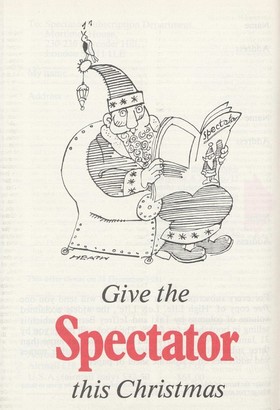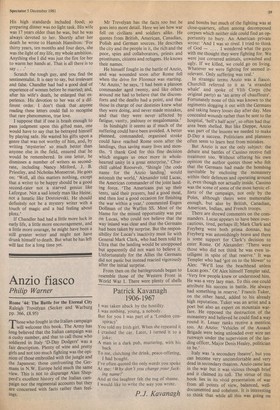Give the
Spectator
this Christmas
His high standards included food; so preparing dinner was no light task. His wife was 17 years older than he was, but he was always devoted to her. Shortly after her death he wrote to Hamish Hamilton: 'For thirty years, ten months and four days, she was the light of my life, my whole ambition. Anything else I did was just the fire for her to warm her hands at. That is all there is to say . .
Scratch the tough guy, and you find the sentimentalist. It is easy to say, but irrelevant and false. Chandler had had a good deal of experience of women before he married; and, after his wife's death, he enlarged that experience. His devotion to her was of a different order. I don't think that .anyone reading these letters could fail to recognise that rare phenomenon, true love.
I suppose that if one is brash enough to pass judgment upon this gifted man, one would have to say that he betrayed himself by playing safe. He wasted his gifts upon a genre that was not worthy of him, and, by writing 'mysteries' so much better than anyone else in the field, ensured that he would be remembered. In one letter, he dismisses a number of writers as secondrate, including Nancy Mitford, J. B. Priestley, and Nicholas Monserrat. He goes on: 'Well, all this matters nothing, except that a writer to be happy should be a good second-rater not a starved genius like Laforgue. Not a sad lonely man like Heine, not a lunatic like Dostoievski. He should definitely not be a mystery writer with a touch of magic and a bad feeling about plots.'
If Chandler had had a little more luck in early life, a little more encouragement, and a little more courage, he might have been a still greater writer and might not have drunk himself to death. But what he has left will last for a long time yet.











































 Previous page
Previous page